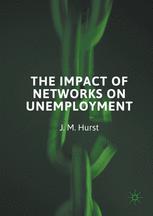

Most ebook files are in PDF format, so you can easily read them using various software such as Foxit Reader or directly on the Google Chrome browser.
Some ebook files are released by publishers in other formats such as .awz, .mobi, .epub, .fb2, etc. You may need to install specific software to read these formats on mobile/PC, such as Calibre.
Please read the tutorial at this link: https://ebookbell.com/faq
We offer FREE conversion to the popular formats you request; however, this may take some time. Therefore, right after payment, please email us, and we will try to provide the service as quickly as possible.
For some exceptional file formats or broken links (if any), please refrain from opening any disputes. Instead, email us first, and we will try to assist within a maximum of 6 hours.
EbookBell Team

4.1
80 reviewsThis book investigates why networks, some with joined-up governance remits, appeared ineffective in handling neighbourhood unemployment even in periods when the national unemployment levels dropped. It deploys a multi-theoretical and methodological framework to investigate this empirical puzzle, and to test and analyse the causal factors influencing network outcomes. Chapters examine network concepts, network theories, outcome indicators, the historical infrastructure and management of unemployment policy, and governing network trends in post-war urban regeneration interventions. Comparative network case studies offer empirical evidence and a high degree of local variation. Mixed methods (qualitative and quantitative approaches), including social network analysis, uncover formal and informal networks, and eighty-six interviews in two English local authorities with persistent unemployment, give voice to network practitioner experiences. Findings explain why sub-optimal network outcomes prevail and operational difficulties persist on the ground. Students and academics, professionals and activists can use the results to challenge network governance theories and the policy status-quo.